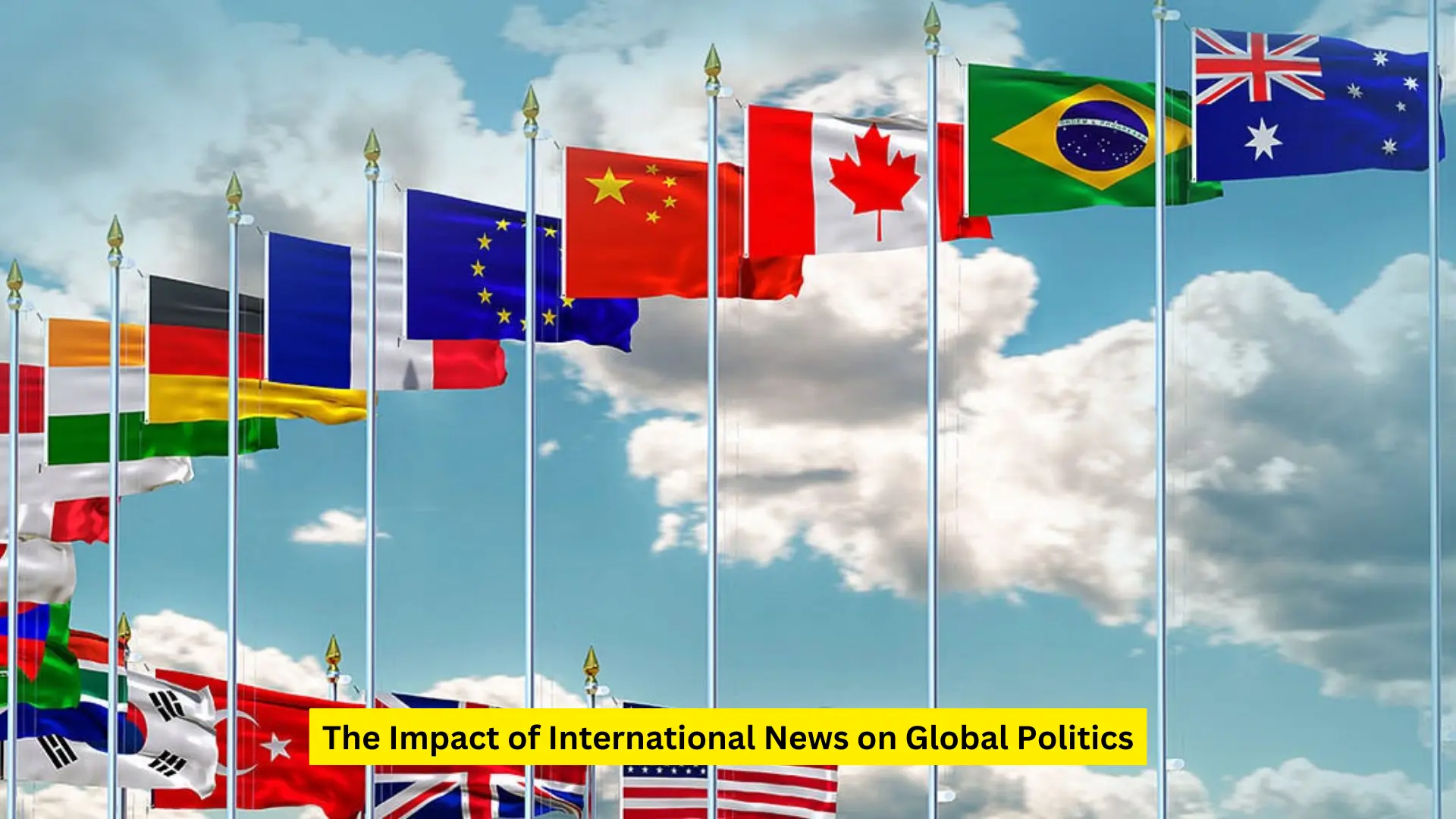In today’s interconnected world, international news plays a crucial role in shaping global politics. The flow of information across borders influences diplomatic relations, economic policies, and public perception. This article delves into the multifaceted impact of international news, examining how media coverage of global events can alter the political landscape.
The Role of Media in Shaping Public Opinion
International news media are powerful tools in molding public opinion. The way events are reported, the language used, and the images shown can all influence how audiences perceive foreign nations and their policies. For instance, during times of conflict, media coverage can sway public sentiment either towards support or opposition of military actions. This influence extends beyond the public to policymakers, who may alter their strategies based on the prevailing public mood.
Media Bias and Its Consequences
Media bias is an ever-present concern in international reporting. News outlets often have their own political leanings, which can affect the way stories are presented. This bias can lead to a skewed perception of events, where certain perspectives are highlighted while others are minimized. Such biased reporting can exacerbate international tensions, as countries may feel unfairly represented or attacked by foreign media.
Case Studies: Media Influence on Major Political Events
- The Arab Spring: The role of social media and international news coverage was pivotal in the Arab Spring uprisings. News reports brought global attention to the protests, putting pressure on regimes and garnering international support for the demonstrators.
- US Elections: International news coverage of US elections impacts not only American voters but also the global community. Media outlets from around the world cover the elections, influencing international perceptions of the candidates and their policies.
The Economic Impact of International News
International news does not only affect politics but also has significant economic implications. Reports on economic conditions, trade agreements, and financial markets can drive economic policies and investor decisions.
Market Reactions to News
Financial markets are particularly sensitive to international news. Reports on economic data, political instability, or natural disasters can lead to swift market reactions. Investors closely monitor international news to make informed decisions, highlighting the interconnected nature of global markets.
Trade and Economic Policies
News coverage of international trade agreements or disputes can influence national economic policies. For example, media reports on trade negotiations between major economies can affect stock markets and currency values, prompting governments to adjust their economic strategies.
The Role of Digital Media and Social Networks
The advent of digital media and social networks has transformed the landscape of international news. Information spreads more rapidly and widely than ever before, making it more challenging to control narratives and verify the accuracy of reports.
The Rise of Citizen Journalism
Citizen journalism has become a significant component of international news. Ordinary individuals armed with smartphones can capture and share events in real-time, often providing perspectives that mainstream media might overlook. This democratization of news has its benefits, but it also poses challenges in terms of verifying the authenticity and accuracy of information.
Social Media’s Influence
Social media platforms like Twitter, Facebook, and Instagram have become critical channels for disseminating international news. They allow for real-time updates and interactive engagement, but they also facilitate the spread of misinformation and propaganda. The role of algorithms in shaping the news feed further complicates the media landscape, as users are often presented with content that aligns with their existing views, reinforcing echo chambers.
Challenges in International Reporting
International journalism faces several challenges, from political censorship to the physical dangers of reporting in conflict zones.
Censorship and Press Freedom
In many parts of the world, journalists face significant restrictions on their ability to report freely. Governments may impose censorship, restrict access to information, or even detain journalists to control the narrative. These restrictions not only hinder the flow of information but also endanger the lives of reporters.
Safety of Journalists
Reporting from conflict zones or politically unstable regions comes with inherent risks. Journalists often put their lives on the line to bring important stories to the global audience. The safety of journalists remains a critical concern, with many facing threats, harassment, and violence in the course of their work.
The Future of International News
As technology continues to evolve, the future of international news will be shaped by advancements in digital media, artificial intelligence, and blockchain technology. These innovations promise to enhance the way news is gathered, verified, and disseminated.
Artificial Intelligence and News Verification
AI technologies are increasingly being used to verify the accuracy of news reports. Algorithms can quickly cross-check facts, detect deepfakes, and identify patterns of misinformation, helping to maintain the integrity of international news.
Blockchain for Transparent Journalism
Blockchain technology offers the potential for greater transparency in journalism. By providing an immutable record of the news production process, blockchain can help ensure the authenticity of reports and protect against tampering.
Conclusion
The impact of international news on global politics and economics cannot be overstated. From shaping public opinion to influencing economic policies and market reactions, the flow of information across borders plays a pivotal role in our interconnected world. As we move forward, the challenges and opportunities presented by digital media, social networks, and emerging technologies will continue to shape the landscape of international news.

